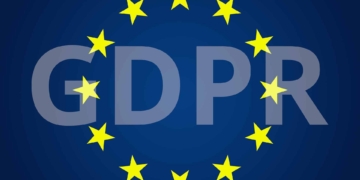Key points of the ruling
The court found that the data shared by the SRB with Deloitte could be considered pseudonymized data because the consultation phase responses were personal data and the SRB shared the alphanumeric code that allowed the responses received during the registration phase to be linked to those received during the consultation phase.
It was also found that Deloitte was a recipient of personal data of the complainants within the meaning of Article 3 No. 13 of Regulation 2018/1725. The fact that Deloitte is not mentioned in the SRB’s privacy statement as a potential addressee of the personal data collected and processed by the SRB as a controller in the context of the consultation procedure constitutes a violation of the data protection principles set forth in Art. 15 para. 1(d) of Regulation 2018/1725 constitutes a duty to provide information.
Impacts and recommendations
Despite the identified breach, the EDPS decided not to make use of his remedial powers under Article 58(2). 2 of Regulation 2018/1725, as the SRB had put in place technical and organizational measures to mitigate risks to the right of individuals to the protection of their data in the context of the procedure concerning the right to be heard.
However, the EDPS recommended the SRB to ensure in future procedures concerning the right to be consulted that its privacy statements cover the processing of personal data during both the registration and consultation phases and that they include all potential recipients of the data collected in order to comply with the information obligation towards data subjects pursuant to Article 15 of Regulation 2018/1725.
Conclusion and outlook: Data protection and pseudonymization in practice
This ruling by the ECJ underscores the importance of data protection in all aspects of data processing, including sensitive areas such as bank processing. It emphasizes the need for all parties involved, including external consultants, to comply with data protection rules and ensure transparency to data subjects regarding the processing of their personal data and the identity of the recipients of that data.
The ruling also shows that the EDPS is willing to take pragmatic decisions when organizations take measures to mitigate risks, even if they have violated data protection rules. However, it is clear that such breaches should be taken seriously and avoided to ensure public confidence in compliance with data protection rules.
It remains to be seen how this ruling will affect the future application of the GDPR. However, it emphasizes the need to comply with data protection regulations in all aspects of data processing and to respect the rights of data subjects.
Overall, this case shows that the topic of data protection, and in particular the application of the GDPR to pseudonymized data, continues to be a dynamic and complex field that requires constant attention and adaptation. It is an important notice for all organizations that process personal data and emphasizes the need to comply with data protection regulations in all aspects of data processing and to respect the rights of data subjects.












































